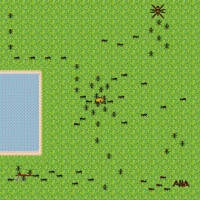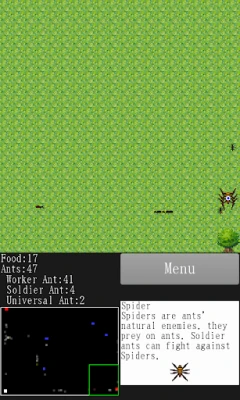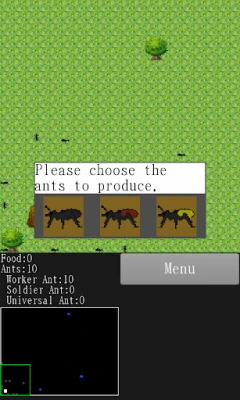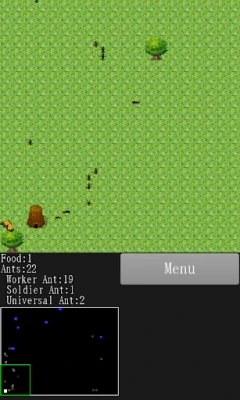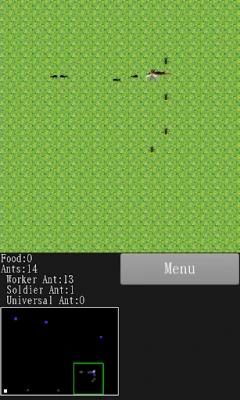
Latest Version
4.3.17
June 09, 2025
ニシハラ
Entertainment
Android
0
Free
com.westplain.antlife
Report a Problem
More About Ants' Life
The Fascinating World of Ants: Types and Their Roles in the Colony
Ants are remarkable creatures that exhibit a variety of behaviors, from foraging for food to defending their colonies against threats. Understanding the different types of ants and their specific roles can provide insight into how these social insects thrive in their environments. In this article, we will explore the three primary types of ants: Worker Ants, Soldier Ants, and Universal Ants, and how they contribute to the success of their colonies.
Worker Ants: The Foragers of the Colony
Worker ants are the backbone of any ant colony. Their primary responsibility is to search for food and gather resources essential for the survival of the colony. These industrious insects are equipped with strong mandibles that allow them to carry food back to their nest, ensuring that the queen and the larvae are well-fed.
While worker ants excel in foraging, they are not equipped to defend the colony against predators. Their role is crucial in maintaining the colony's food supply, which directly impacts its growth and sustainability. By efficiently collecting food, worker ants help increase the colony's population, making them indispensable to the overall health of the ant community.
Soldier Ants: The Guardians of the Nest
In contrast to worker ants, soldier ants are specialized for defense. Their primary function is to protect the colony from threats, such as predators and rival ant species. Soldier ants possess larger bodies and powerful mandibles, enabling them to engage in combat effectively.
While soldier ants do not participate in foraging activities, their presence is vital during confrontations with enemies. They act as the first line of defense, ensuring the safety of the queen and the rest of the colony. Although they may not contribute to food collection, their role in safeguarding the colony is crucial for its survival and prosperity.
Universal Ants: The Versatile Members of the Colony
Universal ants are unique in that they possess the ability to both forage for food and defend the colony. However, their skills in each area are not as refined as those of specialized worker or soldier ants. This versatility allows universal ants to adapt to various situations, making them valuable assets to the colony.
While they may not excel in either role, universal ants can fill in gaps when worker or soldier ants are unavailable. Their ability to switch between foraging and defense helps maintain the colony's stability, especially in times of crisis. By having universal ants in the mix, colonies can ensure that they are prepared for both resource gathering and protection.
Strategies for Increasing Your Ant Colony
To successfully increase your ant colony, it is essential to strike a balance between the different types of ants. By combining worker, soldier, and universal ants effectively, you can create a robust and thriving community. Here are some strategies to consider:
- Encourage Foraging: Ensure that there are ample food sources available for worker ants to collect. This will help sustain the colony and promote growth.
- Maintain Defense: Keep a healthy number of soldier ants to protect the colony from potential threats. Their presence will deter predators and ensure the safety of the queen.
- Utilize Universal Ants: Incorporate universal ants into your colony to provide flexibility. Their ability to adapt to different roles can be beneficial during times of need.
By understanding the unique roles of each type of ant and implementing these strategies, you can foster a thriving ant colony that is well-equipped to face challenges and grow in numbers.
Conclusion: The Importance of Ant Diversity
The intricate social structure of ant colonies highlights the importance of diversity among their members. Worker ants, soldier ants, and universal ants each play vital roles that contribute to the overall success of the colony. By appreciating these differences and leveraging the strengths of each type, you can create a balanced and flourishing ant community.
In summary, the fascinating world of ants offers valuable lessons in cooperation, specialization, and adaptability. By observing their behaviors and understanding their roles, we can gain a deeper appreciation for these remarkable insects and the complex societies they build.
Rate the App
User Reviews
Popular Apps










Editor's Choice










